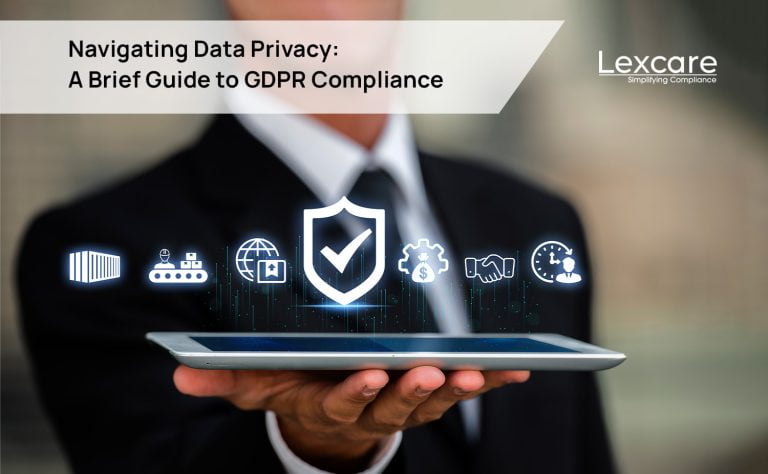In today’s digital age, protecting personal data is becoming imperative for business compliance. Organisations need to be concerned about the EU’s GDPR (General Data Protection Regulation) and assess the impact of it on their business. Penalties and the negative consequences, such as reputational damages and business loss, resulting from failure to comply with GDPR obligations are the factors making organisations worry. This is particularly true for all companies that are involved in processing the personal information of European citizens or transferring such data outside the EU to other international organisations. This technically applies to all the organisations whether operating in European Union or non-EU zones.
With the increasing reliance on technology and the Internet, individuals and organisations must prioritise data privacy. The General Data Protection Regulation (GDPR) is a significant step towards safeguarding personal information and establishing clear guidelines for its use. In this blog, we will briefly explore the GDPR, shedding light on its significance, key principles, repercussions of non-compliance, and steps to ensure adherence.
Data privacy and GDPR
The General Data Protection Regulation or GDPR is a European Union regulation on Information privacy in the European Union and the European Economic Area. GDPR lays down rules pertaining to the protection of natural persons with regard to two things: 1) the processing of personal data, and 2) rules relating to the free movement of personal data.
GDPR protects the fundamental rights and freedoms of natural persons, particularly their right to the protection of personal data.
GDPR came into effect in May 2018, and the regulation has a global impact. All organisations regardless of their location, that have EU citizens as targeted customers or process data from such EU residents must comply with GDPR.
The importance of data protection for businesses
For decades, regulatory compliance requirements have kept businesses around the world on their toes. Now, the compliance efforts of an organisation increasingly revolve around IT and data, making compliance adherence even more complex. Today, the focus of compliance requirements has shifted towards how data is handled and how it affects a person’s privacy.
Data protection is crucial for businesses for several reasons. Adhering to data protection laws and regulations helps avoid hefty penalties, legal consequences, and reputation damages. Data breaches can severely damage a company’s reputation, which in turn erodes customer trust and loyalty.
Moreover, demonstrating strong data protection measures can be a competitive advantage as it helps to attract customers, and encourage them to share information, and engage with the business. More importantly, data protection avoids data breaches and business disruptions, ensuring business continuity.
Key principles of GDPR compliance
GDPR stipulates seven principles and organisations need to integrate them in their compliance approach. Here’s a brief overview of each of them:
- Lawfulness, fairness and transparency – Data processing is permitted if it is lawful, done fairly and in a transparent manner.
- Purpose limitation – The data should be collected for specified, explicit and legitimate purposes and not further processed in a manner that is incompatible with those purposes.
- Data minimisation – The data should be adequate, relevant, and limited to what is necessary in relation to the purposes for which they are processed.
- Accuracy – The data should be accurate and, where necessary, kept up to date; every reasonable step must be taken to ensure that personal data that are inaccurate, having regard to the purposes for which they are processed, are erased or rectified without delay
- Storage limitation – The collected data should be kept in a form which permits identification of data subjects for no longer than is necessary for the purposes for which the personal data are processed.
- Integrity and confidentiality (security) – The data should be processed in a manner that ensures appropriate security of the personal data. This includes protection against unauthorised or unlawful processing and against accidental loss, destruction or damage, using appropriate technical or organisational measures
- Accountability – The controller shall be responsible for, and be able to demonstrate compliance.
The consequences of non-compliance
Implementing GDPR regulations can have an impact on an organisation’s data protection initiatives and strategies. Adherence involves making significant changes to the firm’s IT systems or even investing significantly in the firm’s IT to manage data securely. This is worth the effort compared to the consequences of non-compliance. While adherence to GDPR’s data protection rules can be leveraged as an advantage, non-compliance can be costly and too risky for a business.
Needless to say, non-compliance is not an option. Having inadequate data protection measures can cause compliance concerns such as potential legal action, financial penalties, reputational damages, sales opportunities, and lost revenue.
Conclusion
As data continues to shape the business world, responsible handling and compliance with the relevant data privacy regulations is vital for long-term success and business sustainability. As the EU’s GDPR regulations have set a high benchmark for data protection, organisations will have to enhance their IT capabilities and carry out an organisation-wide effort to ensure comprehensive compliance.



